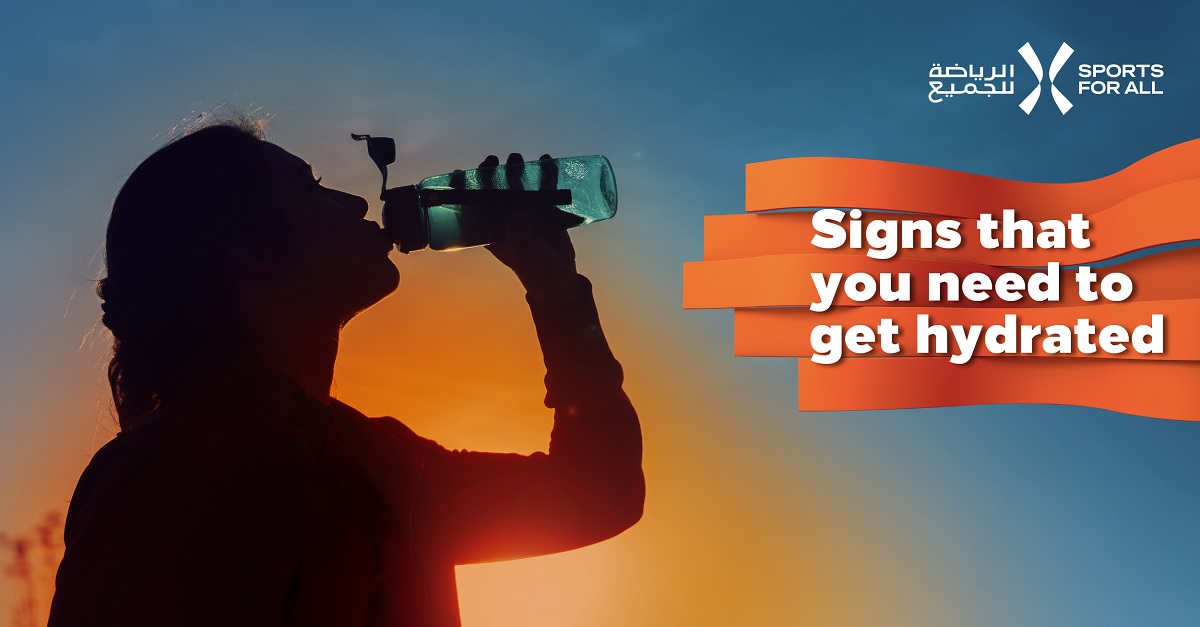As the temperature rises it’s crucial to make sure you are drinking enough water
There’s a good reason to make sure that you drink enough every day (particularly since so many people don’t) and that is that every single cell and organ in your body needs water to function properly. It can even help to regulate your mood and temperature. (Click here to read more about seven benefits to drinking more water!)
The generally accepted amount to drink each day is approximately eight glasses of water, however different people will require different quantities and if you are doing heavy exercise or in extreme heat, you’ll need to up your intake to offset the liquids you lose, or else you’ll become dehydrated. For the record, spending too much time in an air conditioned environment and consuming too many drinks with caffeine (coffee, tea, energy drinks) can also dehydrate you.
What else causes dehydration?
Losing water from your body under ‘normal’ circumstances includes breathing, sweating, crying and going to the bathroom. Other factors that increase the rate at which you lose fluids include a fever, vomiting or diarrhea, excessive sweating or certain medication like diuretics that make you use the bathroom a lot more frequently.
You can also become dehydrated through a number of external factors like being too busy and simply forgetting to drink water (it happens!), you don’t feel like drinking due to a sore through or mouth ulcers, or even because you don’t realize you’re thirsty and you mistake it for hunger.
What are the symptoms of dehydration?
Part of what makes dehydration so dangerous is that the initial symptoms could be put down to different things. They include:
- Having a dry or sticky mouth
- Dry, cool skin
- Headaches
- Muscle cramps
However, the symptoms can quickly become more serious. You should look out for:
- Not urinating at all or producing dark yellow urine
- Rapid heartbeat and breathing
- Very dry skin
- Feeling dizzy
- Sunken eyes
- Sleepiness and lack of energy
- Confusion
- Irritability
- Fainting
Generally, dehydration can be treated at home with increasing your fluid intake by drinking more water, soup, broth, sports drinks, and sucking ice pops. In some cases, you might need a trip to the hospital to receive fluids quickly intravenously.
What happens if you ignore dehydration?
Ignoring these signs could lead to severe complications. The main concern, given the temperatures reached in this region, is the risk of heat injury which could lead to cramps, heat exhaustion, or life-threatening heatstroke. Heatstroke requires emergency medical treatment because it can affect your brain, heart, kidneys, and muscles.
Your kidneys will also suffer if you ignore dehydration since their function is to filter the blood and pass waste in urine. Without enough fluid, you could develop kidney stones or even kidney failure. A lack of fluids and imbalanced electrolytes can even lead to seizures since their role is to carry electrical signals from cell to cell, and without them the messages get muddled and the result can be involuntary muscle contractions and even unconsciousness.
How can I stay hydrated?
There are a number of ways to help yourself get and stay in the habit of drinking water regularly.
- Download an app or set a timer every 30 minutes to remind yourself to drink more
- Keep a large water bottle next to you so you can see how much water you need to drink to make your daily quota
- If you’re a caffeine fiend, drink a glass of water for every cup of coffee. Get the water when you make a coffee and carry them both back to your desk
- Refill your glass as soon as its empty and keep it with you
Remember, your risk of becoming dehydrated increase exponentially while you exercise over summer, so it is crucial to your health that you maintain your hydration levels.
Healthy Living is a frequently updated content section brought to you by the Saudi Sports for All Federation. In the spirit of supporting our #HealthyActiveCommunity, we’re sharing tips around wellness, physical activity and more!






